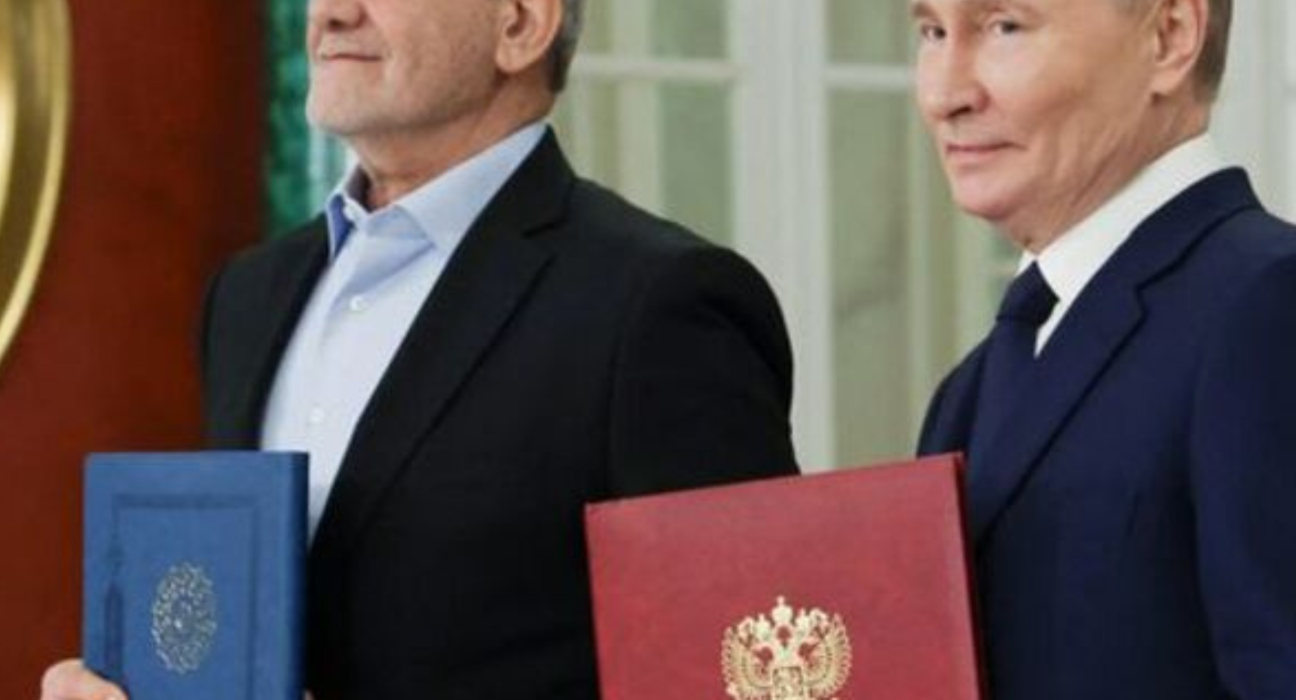Why In News
The Russian Federation has pledged to export 55 billion cubic meters (bcm) of Russian natural gas to the Islamic Republic of Iran annually. This preliminary agreement was affirmed between the Russian Energy Minister Sergei Tsivilev and Iranian Petroleum Minister Mohsen Paknejad on 25th of April 2025 when the latter was visiting Moscow for the 18th session of the Iran-Russia Joint Economic Cooperation Commission.
These volumes are set to be transported via the existing Novo Filya pipeline that transits till Azerbaijan and likely a further transit would follow via the Hajigabul Astara Abadan line to Iran. Tsivilev noted that these deliveries will commence at 1.8 bcm initially starting this year itself, albeit the prices remain undetermined as of yet.
Into the bargain, a $4 billion investment plan consisting of four separate agreements to develop seven oil fields across Iran by Russian companies is currently under deliberation. These agreements align with the strategic MoU concluded in June 2024 between Russia’s Gazprom and the National Iranian Gas Company (NIGC) which intends to revamp Iran as a conduit for regional gas to be navigated further in the region. Reports have indicated potential collaboration with Qatar as well as Turkmenistan.
Another agreement that has come to light is their collective endeavor to construct a new nuclear power plant in Iran which would be funded by a line of credit from Moscow. Paknejad noted that this agreement would expedite the completion of phases two and phase three of the Bushehr plant which still remains due.
THE COMPREHENSIVE STRATEGIC PARTNERSHIP TREATY
Amid this plethora of concentrated collaboration, a significant catalyst emerged with the ratification of the Strategic Partnership Agreement with Iran by Russian President Vladimir Putin on April 21, 2025 which was already approved by Russia’s State Duma and the Federation Council. This stride marks the solidification of their 20 years Comprehensive Strategic Partnership Treaty (CSPT) between the Russian Federation and the Islamic Republic of Iran which was signed in Moscow on 17th of January, 2025 between Russian President Vladimir Putin and Iranian President Masoud Pezeshkian. It comprehensively deals in a range of arenas which span from defense and security to transportation and investment along with nuclear and information technology and so on.
For an In-Depth Analysis of the 20 year Comprehensive Strategic Partnership Treaty, Please click HERE
The stipulated commitment has been underscored and bolstered with the ascent of the preliminary agreement and the concurrent projects. In particular the Article 22 which mandates bilateral energy cooperation which seeks to promote investment in developing oil and gas infrastructure projects. Moreover, Article 23 separately deals with peaceful nuclear energy which seeks to promote projects of constructing nuclear energy facilities which would be mutually beneficial.
Russia Iran Relations
As Paknejad aptly noted, ‘In the field of global diplomacy, the relations between Tehran and Moscow are noteworthy.’ The magnitude of strategic collaboration among Moscow and Tehran was distinct in the post soviet era as their mutual apprehensions had marred the prospects of collaboration in the previous eras. This antagonism started to diffuse only amid their synchronized antagonism towards the West in the subsequent years. Their alliance intensified as either were subjected to severe scrutiny under the western sanctions.
Conclusion
Despite possessing abundant gas reserves, Iran is compelled to import Russian gas to quench their energy needs, particularly for the northern regions of the country. Thus, this extensive energy cooperation with Moscow would not only satiate such shortcomings but would also strengthen their partnership to navigate the turbulent geopolitical landscape. Hence, both Russia and Iran seek to leverage their complementary capacities to cultivate a constructive coalition as for it remains essential to thwart the crippling sanctions that paralyse their economy.




